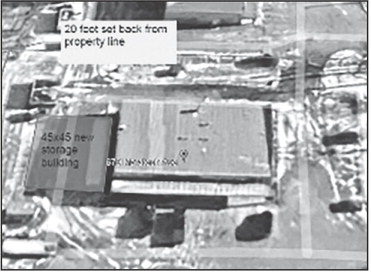Dismissed
Continued from page 1
ese said: “We are reviewing the decision and evaluating next steps.”
In his ruling, Judge Jacobson picked apart the company’s justification for seeking to invalidate the licensing ordinances based on current state statute. He broke down EDP’s complaint into five areas of concern: licensing, pre-application review, decommissioning requirements, compliance monitoring and subjective evaluation criteria.
In each category, the judge found that the towns do, in fact, have the ability to enforce the requirements in their ordinances under PSC Administrative Code 128, which spells out the rights of local governments to review, approve and monitor wind energy systems in Wisconsin.
When it comes to the question of licensing, the judge affirmed the towns’ ability to require a local license and to have it come up for renewal after 15 years. Even though PSC 128 does not “specifically provide for time limits” on licenses, it does allow the towns to monitor compliance with its rules, so the requirement for periodic renewals is justifiable, the judge wrote.
On the issue of pre-application consultation and application requirements, Judge Jacobson pointed out that the towns are asking EDP to do exactly what is recommended by the PSC in its guidance documents for local units of government.
“Given that these pre-application and application requirements came directly from PSC guidance, they cannot be said to go beyond the PSC’s requirements. They ARE the PSC’s requirements,” he wrote.
Regarding the towns’ requirements for decommissioning inactive wind energy systems, Judge Jacobson said EDP was “mistaken” when it claimed that the PSC does not allow for local governments to set up a process for determining when a wind system is no longer active.
“Abandonment is contemplated under the Commission’s rules as a potential end point for wind energy systems,” he wrote. “Under those rules, when a wind energy system has not produced any electricity for a certain amount of time, it is presumed to have reached the end of its useful life and must be decommissioned and removed.”
In addition, Judge Jacobson said it’s not unreasonable for the towns to require a financial surety of $200,000 per wind turbine, given that the ordinances also allow for a lower amount if the costs to remove them is found to be less.
“On the whole, this provision is a reasonable attempt on the part of the Towns to define what constitutes sufficient surety under the Commission’s rules,” the judge wrote.
EDP had also objected to the fact that the ordinances allow the towns to inspect the wind turbines to verify compliance with their requirements, rather than leaving that up to “third-party inspectors.” Judge Jacobson said the PSC does allow an energy company to be charged a fee for a third-party inspector, but that does not mean one is required.
Finally, the judge addressed the issue of what EDP referred to as “subjective criteria” in the towns’ review process. These “subjective criteria” include “whether a wind energy system is contrary to a zoning designation, presents a net economic liability to the community, presents risks to public health, presents risks to wildlife or regional ecosystems, changes the character of an area, impacts radar systems, and/or impacts use of restricted air space or a military installation.”
Judge Jacobson says state law gives local units of government discretion over whether or not to grant permits for wind energy, and all of the factors listed in the towns’ ordinances are also mentioned in PSC 128, so it’s reasonable for the towns to take them into consideration.
“Accordingly, the subjective criteria listed in the ordinances are not a basis to invalidate them,” he wrote. “Those criteria are proper under state law.”
Wind opponent responds
A couple of organizations, including Farmland First and Wisconsin Advocates for Reponsisble Energy, have formed to oppose industrial wind and solar projects.
Trine Spindler, a farmer in the town of Day, who has led many of those local efforts, expressed her gratitude for last week’s ruling.
“As a resident, I am very happy with the outcome of the lawsuit,” she wrote in a statement. “I see it as round one going to the underdog, but I am under no illusion that this will be the end of the fight against weather-based energy in Marathon County.”
Now that a judge has ruled in favor of the local ordinances, Spindler said she hopes to see more support from both Marathon County and the Wisconsin Towns Association for town officials who are opposed to large-scale renewable energy facilities locating in their municipalities.
“I will continue to work with our towns to ensure a strong, united front and remain committed to sharing information with residents as developments unfold,” she said.


